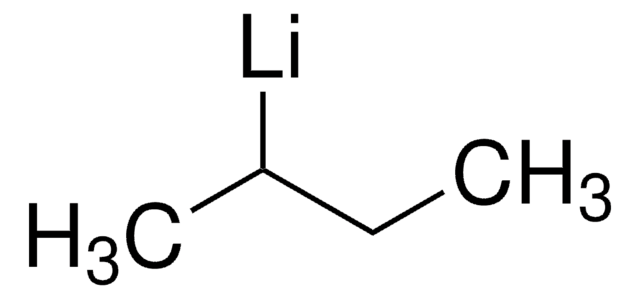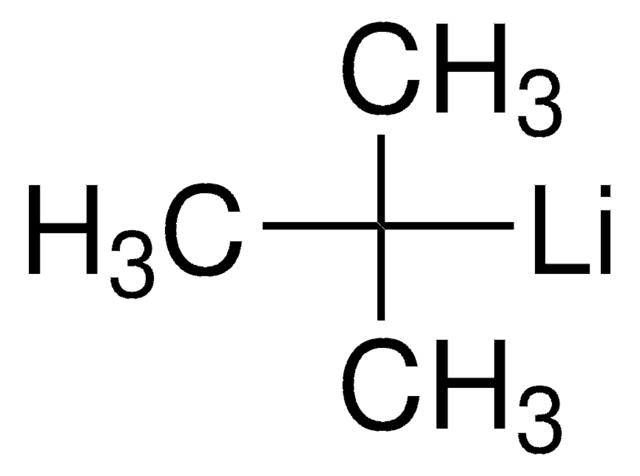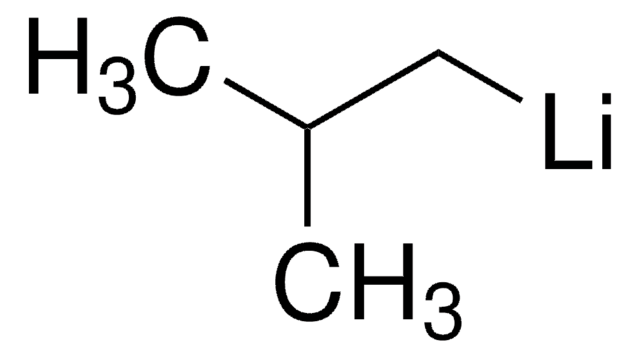302120
n-Butyllithium solution
2.0 M in cyclohexane
Synonym(s):
n-BuLi, Butyl lithium, Butyllithium solution, Lithium-1-butanide
About This Item
Recommended Products
form
liquid
Quality Level
concentration
2.0 M in cyclohexane
bp
80 °C
density
0.775 g/mL at 25 °C
storage temp.
2-8°C
SMILES string
[Li]CCCC
InChI
1S/C4H9.Li/c1-3-4-2;/h1,3-4H2,2H3;
InChI key
MZRVEZGGRBJDDB-UHFFFAOYSA-N
Looking for similar products? Visit Product Comparison Guide
General description
Application
- A polymerization initiator to synthesize polystyrenes by anionic polymerization of styrene.
- A strong base in the diastereoselective alkylation reactions.
- A reagent to synthesize 2-benzoylpyrroles by reacting benzaldehydes with di(1H-pyrrol-1-yl)zirconium(IV) chloride complex.
Packaging
Legal Information
related product
Signal Word
Danger
Hazard Statements
Hazard Classifications
Aquatic Acute 1 - Aquatic Chronic 1 - Asp. Tox. 1 - Eye Dam. 1 - Flam. Liq. 2 - Skin Corr. 1B - STOT SE 3 - Water-react 1
Target Organs
Central nervous system
Supplementary Hazards
Storage Class Code
4.3 - Hazardous materials which set free flammable gases upon contact with water
WGK
WGK 2
Flash Point(F)
-0.4 °F - closed cup
Flash Point(C)
-18 °C - closed cup
Personal Protective Equipment
Certificates of Analysis (COA)
Search for Certificates of Analysis (COA) by entering the products Lot/Batch Number. Lot and Batch Numbers can be found on a product’s label following the words ‘Lot’ or ‘Batch’.
Already Own This Product?
Find documentation for the products that you have recently purchased in the Document Library.
Customers Also Viewed
Articles
Transformative reagents enable selective conversions within molecules containing sensitive functionalities under mild reactions.
Our team of scientists has experience in all areas of research including Life Science, Material Science, Chemical Synthesis, Chromatography, Analytical and many others.
Contact Technical Service













